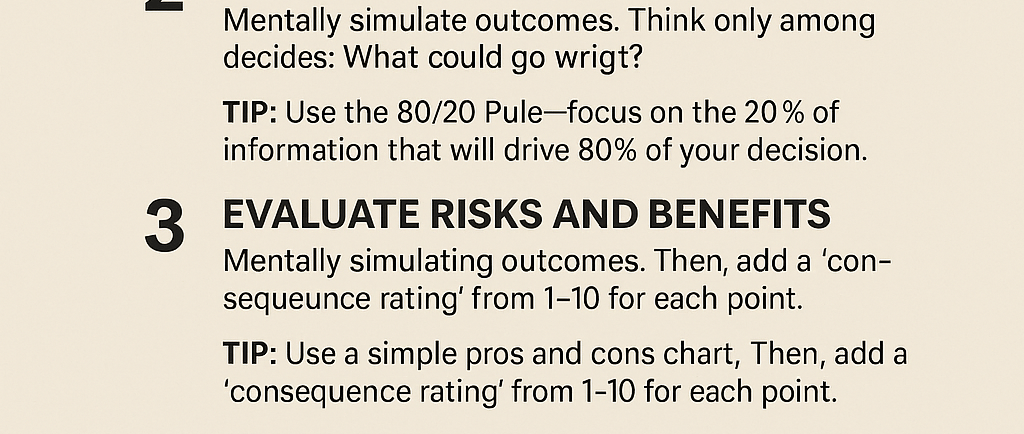How to Think Like a Decision Maker


How to Think Like a Decision Maker
In today’s fast-paced world, the ability to think like a decision maker is not just a leadership skill—it’s a survival skill. Whether you’re managing a business, preparing for competitive exams, or leading a project, decision-making shapes your success. But how do top decision makers think? And how can you train your mind to approach problems the way they do?
1.Start with Clear Goals
Decision makers always begin with a clear objective. They don’t make choices in a vacuum; they ask: “What are we trying to achieve?” Whether it’s increasing sales, solving a crisis, or choosing between two colleges, clarity about the end goal guides every step.
Tip: Before making any decision, write down what success looks like.
2.Collect Relevant Information
Thinking like a decision maker involves gathering only the information that matters. They don’t get lost in details—they filter facts, focus on data, and ignore noise. This allows them to avoid analysis paralysis.
Tip: Use the 80/20 Rule—focus on the 20% of information that will drive 80% of your decision.
3.Evaluate Risks and Benefits
Effective decision makers mentally simulate outcomes. They think: What could go wrong? What could go right? This helps them make informed, balanced choices—not emotional ones.
Tip: Use a simple pros and cons chart. Then, add a “consequence rating” from 1–10 for each point.
4.Think Long Term
Short-term comfort can lead to long-term regret. Decision makers often delay gratification and choose the harder path today for greater rewards tomorrow.
Tip: Ask yourself: Will this decision help me in 1 year? 5 years?
5.Make Peace with Imperfection
No decision is ever made with 100% certainty. Decision makers understand this. They take action based on reasonable confidence, not perfect information. Waiting too long is often worse than a wrong choice.
Tip: Set a time limit to decide. Overthinking drains energy and creates confusion.
6.Learn from Every Decision
Whether right or wrong, decision makers reflect afterward. What worked? What didn’t? They build a library of personal insights that improve future decisions.
Tip: Keep a “decision journal.” Note what you decided, why, and what the outcome was.
7.Control Emotions, Stay Objective
Strong emotions can cloud judgment. Good decision makers are aware of their biases. They stay calm, detached, and rational even under pressure.
Tip: When emotional, pause and ask: Would I give the same advice to a friend?
Conclusion
Thinking like a decision maker is not about being perfect—it’s about being prepared, thoughtful, and courageous. It means choosing action over hesitation and responsibility over blame. With practice, anyone can train themselves to think this way, leading to better results in both life and career.
As Peter Drucker said, “Whenever you see a successful business, someone once made a courageous decision.” Now, it’s your turn to make better ones..
